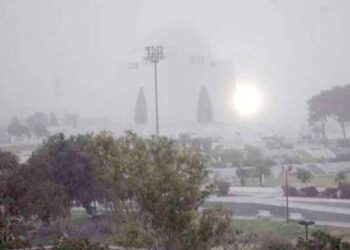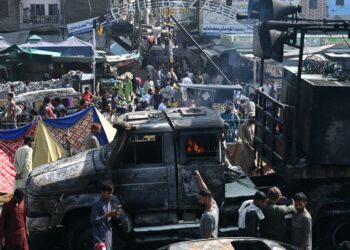Deputy Prime Minister Ishaq Dar has stated that while India requested the ceasefire itself, the military-to-military ceasefire is functioning properly, but the Indian political leadership is struggling to accept it. He said internal pressure within India appears to be high, as they alternately call the ceasefire temporary or claim it was just a trailer with more to come. “We have already settled our account,” he added.
While addressing the Pakistani community in Kuala Lumpur, Malaysia, Dar said that four days after the Pahalgam incident, the Prime Minister offered India cooperation in investigations. Still, no response has been received to date.
He noted that although India did not directly name Pakistan in connection with the Pahalgam attack, all of its actions were anti-Pakistan. In response to India’s steps, Pakistan mirrored those actions. When India expelled and declared Pakistani diplomats persona non grata, Pakistan responded in kind.
He added that when India cancelled Pakistani visas, Pakistan also cancelled Indian visas, except for Sikh pilgrims. Furthermore, India suspended the Indus Waters Treaty without any international framework, prompting Pakistan to close its airspace for Indian flights.
Dar emphasized that Pakistan has made it clear India can neither block nor divert its water and that no one will be allowed to look at Pakistan with a hostile eye.
He reiterated that while India itself requested the ceasefire, its political leadership is unable to digest it.
The Deputy Prime Minister said that this time, Pakistan successfully countered India’s narrative worldwide. From April 22 to May 6, Pakistan engaged with the capitals of 29 countries to assert that India was spreading false information and that Pakistan had no involvement in the Pahalgam incident. “We are the biggest victims of terrorism,” he said, noting that Pakistan has lost 80,000 lives and suffered economic damages of $150 billion.
He admitted that Pakistan is also responsible for the failure of its previous counter-terror operations. Referring to a 2017 cleanup of militants, he said Pakistan opened borders for fleeing TTP terrorists and released dangerous prisoners, allowing terrorism to resurface. However, the government is now determined to eliminate terrorism.
Dar said that upon assuming dual roles as Deputy PM and Foreign Minister, he instructed the foreign office to transition from traditional diplomacy to economic diplomacy. “It is time to work for the economy and the welfare of 240 million people,” he asserted.
He mentioned that the same Pakistan, once diplomatically isolated, has now been elected to the UN Security Council for the eighth time, receiving 182 votes against 5, compared to just a one-vote lead during its seventh term.
He emphasized that joining the G20 is Pakistan’s next target, and economic diplomacy is the need of the hour.
The Foreign Minister revealed that Pakistani pilots were strictly instructed not to engage Indian aircraft unless they crossed into Pakistani airspace. However, if they launched payloads from their territory, they should not be allowed to return. He proudly stated that the Pakistan Air Force downed six Indian aircraft, including four Rafales, despite Indian Prime Minister Modi’s claims that Rafales made India invincible.
Dar concluded by saying that every Pakistani living abroad is an ambassador of the country. He expressed happiness in meeting the overseas community and acknowledged the difficult economic situation Pakistan faced. Despite challenges, Pakistan achieved economic “take-off” and, for the first time in history, completed the IMF reform program. Efforts for economic improvement continue, with G20 membership as a key goal.





















